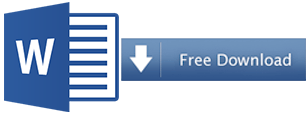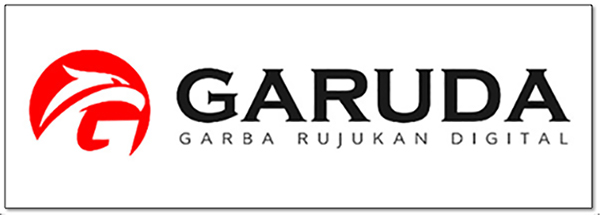Focus and Scope
Sosiogobal: Jurnal Pemikiran dan Penelitian Sosiologi is the Department of Sociology, Faculty of Social and Political Science, Universitas Padjadjaran flagship journal. The Sosioglobal journal founded in 2016 with the mission to publish original works of interest to the discipline of sociology in general, sociological thinking, new theoretical developments, results of research that enhance understanding of fundamental social processes, and methodological innovations.
Since Vol 4th, No. 1, Sosioglobal has accredited Sinta 3 from Ministry of Research and Technology/Agency for the Assessment and Application of Technology.
We are welcome to all researcher and scholars to submit articles to our journal. In addition, we are accept relevant book review that currently publish and enrich sociological perspectives.
Section Policies
Artikel
Peer Review Process
Ethical Guidelines for Peer Reviewers :
- Article review process in Sosioglobal Journal use double-blind type review.
- A reviewer must agree to review a paper for which he/she has the subject expertise needed to carry out a proper assessment and that they can do it in a timely fashion.
- Any reviewer who feels he/she is not competent to review a particular manuscript must return it to the editor immediately.
- A reviewer must make available to the journal, personal and professional details that are truthful and exact representation of their competency.
- Reviewers must treat manuscript work with utmost confidentiality and must not make others aware of the details of any manuscript they review during or after the process of review.
- Reviewers should not use information from the manuscript for their own benefit or that of other bodies before they are published.
- Reviewers must be impartial, desisting from being provocative and from making defamatory or offensive personal comments.
- Reviewers must make known any competing or conflict of interest, be it personal, financial, intellectual, professional, political or religious. Where they are not sure, the reviewer should seek clarification from the editor.
- Reviewers should decline to review if the manuscript under review is very similar to one they have in preparation or under consideration at another journal.
- If there is evidence of plagiarism, duplicate submission to another journal, unethical research design or excessive fragmentation of results to achieve multiple publications of manuscript, the reviewer should comment on them.
- The reviewer’s identity must be kept anonymous throughout the review process, unless they have authorized disclosure
- The reviewer must report to the editor any similarities between the manuscript under review and any published paper submitted to the same or another journal.
- The reviewer must not make known to others, without the consent of the editor or author, any unpublished information, arguments or interpretations contained in the manuscript under consideration.
- A reviewer should not review a manuscript of an author with whom he/she has a personal or professional relationship, if such relationship will affect the judgment of the manuscript.
Publication Frequency
Sosioglobal Journal published two times a year in June and December.
Open Access Policy
This journal provides immediate open access to its content on the principle that making research freely available to the public supports a greater global exchange of knowledge. Journal Sosioglobal has Creative Commons Attribution-ShareAlike 4.0 International License which free to :
- Share — copy and redistribute the material in any medium or format
- Adapt — remix, transform, and build upon the material for any purpose, even commercially.
Archiving
This journal utilizes the LOCKSS system to create a distributed archiving system among participating libraries and permits those libraries to create permanent archives of the journal for purposes of preservation and restoration.
Publication Ethics
Ethical Guidelines for Authors
• Authors must present their manuscripts in a concise, accurate, and complete form including an objective discussion of the significance of the research.
• Authors must provide correct citation and reference in their submitted manuscript as a form of recognition to published works related to their work. All sources must be cited and when necessary, permission must be sought by the author in accordance with copyright laws when significant amount of other people’s materials are used.
• Authors are to avoid undue fragmentation of research into multiple manuscripts for publication. Authors are not to engage in redundant publication where two papers share the same hypotheses, data, discussion points, or conclusions.
• It is unethical to submit a journal without disclosing the fact that a related article has already been submitted. Authors therefore should inform the editor of related manuscripts under consideration for publication in another journal.
• Authors are to submit a manuscript to only one journal at a time. It is unethical to submit an article describing essentially the same research to more than one journal.
• Authors must duly acknowledge, but not identify as authors, all who have contributed to the work. Those who contributed significantly in the concept, design, acquisition of data, and execution or interpretation of the research could be listed as co-authors.
Authorship credit should be based on authors fulfilling three criteria:
1. Substantial contribution to conception and design, execution, or analysis and interpretation of data;
2. Drafting the article or revising it critically;
3. Reading and approving of the final version.
• In some cases the lead author should submit a statement specifying the contributions of each co-author.
• Before submitting the manuscript, the corresponding author must see to it that those listed as co-authors have agreed to its submission for publication. Any change in authorship after the submission of the manuscript must be approved by all the authors and justified to the editor.
• The author must inform the editor of any conflict of interest at the time of manuscript submission. The sources of funding of the research submitted must also be clearly stated. Again the author is obligated to disclose to the editor and to readers any potential and relevant competing financial or other interest of all the authors.
• Authors are not to engage in plagiarism. Misappropriation of another person’s intellectual property — copying sentences verbatim including the reuse of author’s own previously published work without attribution, called self-plagiarism, must be avoided. Credit must be given to all whose works were referred to in the production of the manuscript.
• Authors are to put together data as a true reflection of findings devoid of scientific dishonesty, fraud, fictitious or manipulated data, plagiarized material, reference omission, false priority statement, hidden or multiple publication of the same data and incorrect authorship. They are not to go against any copyright laws. They are also supposed to seek permission from relevant publishers when reproducing figures or schemes from previous publications.
Ethical Guidelines for Editors
• Editors must acknowledge the receipt of manuscript in a timely manner and ensure that editorial and peer review processes are fair, efficient, and responsive.
• The editor must make sure that submitted manuscripts remain confidential throughout the editorial and peer review process.
• The decision by the editor to accept or reject a paper for publication should be based purely on the paper’s quality, originality, and clarity, as well as its relevance to the focus of the journal.
• In the spirit of transparency, the nature and method of peer review processes should be published, and editors should be ready to explain any important nonconformity to the described processes.
• Editors must inform readers about who has funded the research or other scholarly work and whether the funders had any role in the research and its publication and, if so, what this was. If competing interests are revealed after publication, the editor should publish the correction, revealing all relevant competing interests for all contributors.
• The editor must attend immediately to any complaints in an open and respectful manner, and must ensure that there is a well-laid out mechanism for handling any grievances.
• The editor must not be partial in the judgment of manuscripts. Each manuscript must be considered independent of background, religion, gender, race, institutional affiliation, etc.
• To avoid issues of conflict of interest, any manuscript authored by the editor must not be handled by the editor him or herself, but must be given to some other qualified editor to manage.
• If errors are discovered in a paper published by a journal, the editor should aid in the preparation of a report indicating the outlined errors and if possible provide correction to such errors. The report could be written by you, the author, or another member of your editorial team.
• Editors should publish corrections if errors are discovered that could affect the interpretation of data or information presented in an article.
• Editors should ensure that there is a clear guideline that defines the criteria for authorship. Any author who does not meet such criteria must be omitted from the list of contributors.
• Editors should be very cautious when publishing images of objects that might have cultural significance or cause offense.
Ethical Guidelines for Peer Reviewers
• A reviewer must agree to review a paper for which he/she has the subject expertise needed to carry out a proper assessment and that they can do it in a timely fashion.
• Any reviewer who feels he/she is not competent to review a particular manuscript must return it to the editor immediately.
• A reviewer must make available to the journal, personal and professional details that are truthful and exact representation of their competency.
• Reviewers must treat manuscript work with utmost confidentiality and must not make others aware of the details of any manuscript they review during or after the process of review.
• Reviewers should not use information from the manuscript for their own benefit or that of other bodies before they are published.
• Reviewers must be impartial, desisting from being provocative and from making defamatory or offensive personal comments.
• Reviewers must make known any competing or conflict of interest, be it personal, financial, intellectual, professional, political or religious. Where they are not sure, the reviewer should seek clarification from the editor.
• Reviewers should decline to review if the manuscript under review is very similar to one they have in preparation or under consideration at another journal.
• If there is evidence of plagiarism, duplicate submission to another journal, unethical research design or excessive fragmentation of results to achieve multiple publications of manuscript, the reviewer should comment on them.
• The reviewer’s identity must be kept anonymous throughout the review process, unless they have authorized disclosure
• The reviewer must report to the editor any similarities between the manuscript under review and any published paper submitted to the same or another journal.
• The reviewer must not make known to others, without the consent of the editor or author, any unpublished information, arguments or interpretations contained in the manuscript under consideration.
• A reviewer should not review a manuscript of an author with whom he/she has a personal or professional relationship, if such relationship will affect the judgment of the manuscript.













